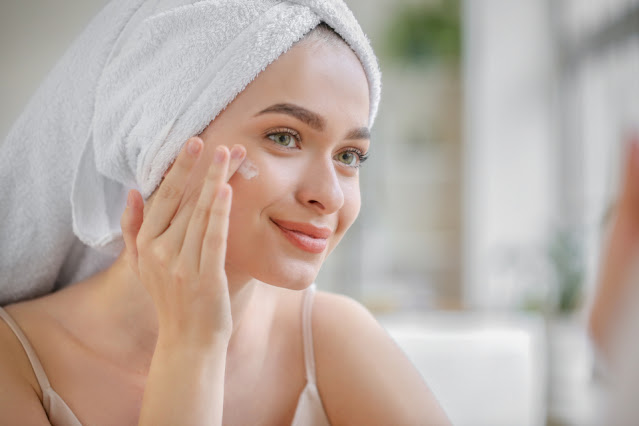Simple Tips to Treat Hormonal Acne Naturally at Home
Although it is usually associated with hormonal fluctuations during puberty, hormonal acne can affect adults of any age. This is especially common in women. A number of factors can contribute to hormonal acne, including menstruation and menopause.
An estimated 50% of women aged 20 to 29 years have acne. It affects approximately 25% of women ages 40 to 49. (healthline.com)
Opinions of Dermatologists vary regarding hormonal acne. Hormones are generally not a factor in adult acne, hormonal imbalances can cause acne in adults with underlying medical conditions.
In other cases, adults with acne may not have a "measured" hormone problem. It can make diagnosis and treatment difficult.
What Are Hormonal Acne?
It's important to understand the difference between hormonal acne and good old fashioned acne. Hormonal acne is intrinsically linked to your hormones, resulting in "cyclical acne" that usually coincides with your menstrual cycle. It can also adjust to other hormonal changes in your life, which means your menopausal acne or postpartum acne could be hormonal.
Hormonal acne isn't a technical term. However, when a person tends to get a very specific type of acne around the time of their period, or when their body undergoes major hormonal changes for other reasons (PCOS), dermatologists generally describe it as hormonal acne.
What Are The Causes of Hormonal Acne?
Acne is caused by clogged pores. Hormonal acne develops when hormonal changes in your body increase the amount of oil your skin produces. This oil interacts with bacteria in the pores of the skin where hair grows (hair follicles) and causes acne.
Clogged pores are a result of:
- Excess sebum (oily substance made from the sebaceous glands in the middle layer of your skin).
- Bacteria. and dead skin cells.
How To Get Rid Of Hormonal Acne Naturally
If you don't want to opt for chemical treatment, there are a variety of ways to treat hormonal acne naturally, from certain bacteria-fighting essential oils to prioritizing stress reduction. Here, experts weigh in on the best natural treatments for hormonal acne.
Customize your skincare
When it comes to lifestyle factors such as your skin care routine, it is important for those of you with hormonal acne to cleanse their skin at least once or twice a day. You'll want to make sure you get rid of bacteria and excess sebum, which contribute to acne, so don't skimp on cleansing, but also don't over-cleanse or try to scrub the pimple, as this can damage the skin.
Using harsh soaps or abrasive scrubs can irritate the skin and contribute to the worsening of acne.
If you don't mind changing your skincare routine, period syncing can also help. The first step is to track your menstrual cycle, which you can do through an app such as FLO. The trick is that your skin goes through a series of changes as your hormones ebb, and flow throughout your approximately 28 day cycle, and therefore your skincare routine must change to accommodate the relationship between skin and hormones.
This means using an alpha hydroxy acid in the week before your period, when estrogen drops (a sign of excess oil production), or using a hydrating facial oil in the week of your period, low hormone levels resulting in a duller complexion. By doing this, you can anticipate the changes in skin care that are taking place in your body—and adapt your routine to fit your unique cycle.
Watch Your Diet
Diet can contribute to hormonal acne. According to experts, foods with a high glycemic index, such as sugary foods, have been shown to worsen hormonal and non-hormonal acne. Refined sugar and starch increase your blood glucose levels, which causes inflammation and triggers acne. Keep eating whole grains. Other skin-friendly foods that are recommended to include in your diet are: fermented ingredients like kombucha, kimchi, and sauerkraut. This helps balance your body's microbiome and reduces inflammation that causes acne.
Avoid cow's milk if you suffer from hormonal acne, as it has been linked to getting worse acne. It's not clear whether it's the sugar or the hormones in milk from lactating cows, but skim milk may cause acne in predisposed individuals. Consider a milk substitute such as almond or oat milk, or opt for goat's milk if you are prone to acne.
Increase your intake of green tea if you experience hormonal acne frequently. Green tea has anti-inflammatory benefits, making it another good choice for reducing the inflammation that can cause hormonal acne.
Reducing Your Stress Level
Stress harms your body in a number of ways, stress can have a serious impact on the skin and cause hormonal acne to flare up. During periods of stress, your body produces more testosterone, which in turn stimulates oil glands and hair follicles to trigger breakouts.
Stress impairs wound healing as well as promotes acne. The same hormones that help prepare your body for stressful situations also have an impact on your skin, so, whether it's meditation or yoga, do what you can to minimize your personal stress level. Daily meditation is a great way to reduce stress, as is exercise.
When to see a doctor?
You have to consult a dermatologist for severe acne.
People are advised to see a doctor and even a skin specialist if:
1. Lots of acne
2. There is a serious wound
3. There is a risk of scar tissue
4. Pimples can affect pigmentation
If acne is affecting your daily functioning, then you should seek help too.

No comments:
Post a Comment